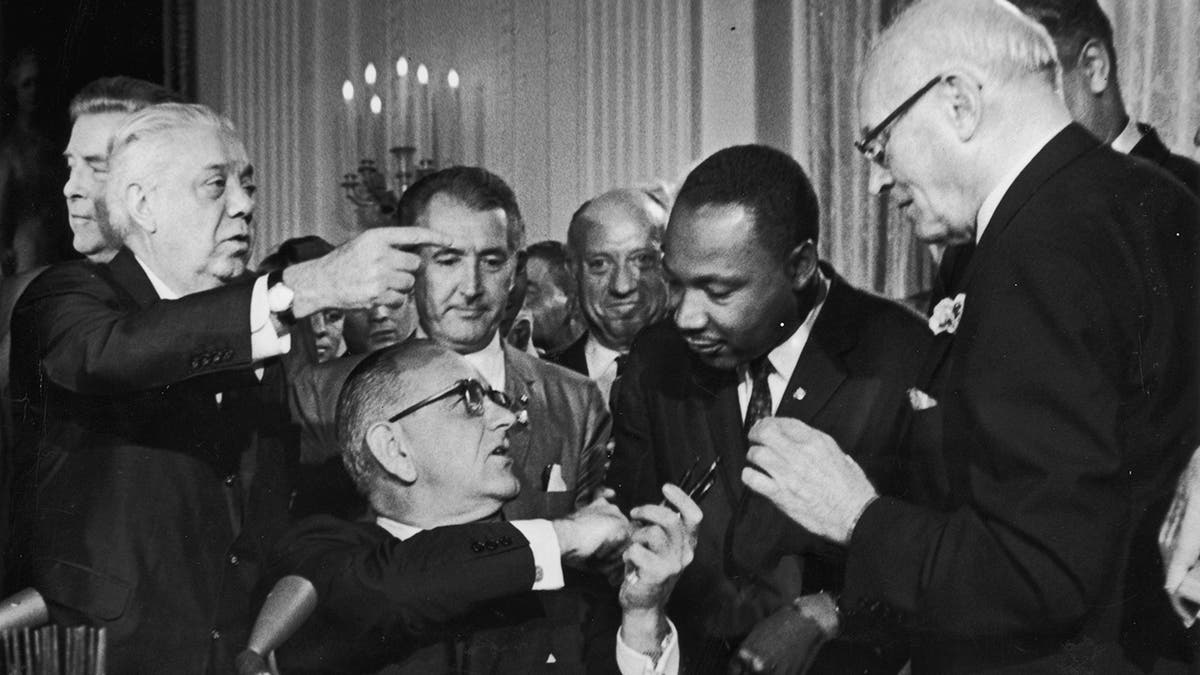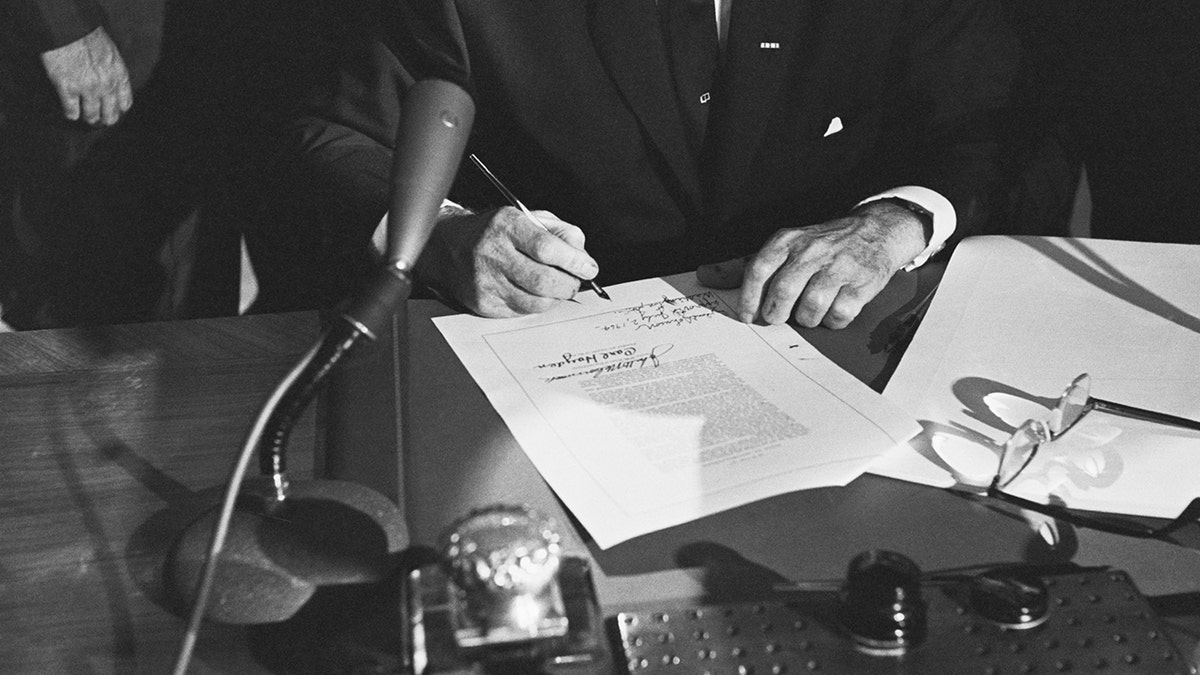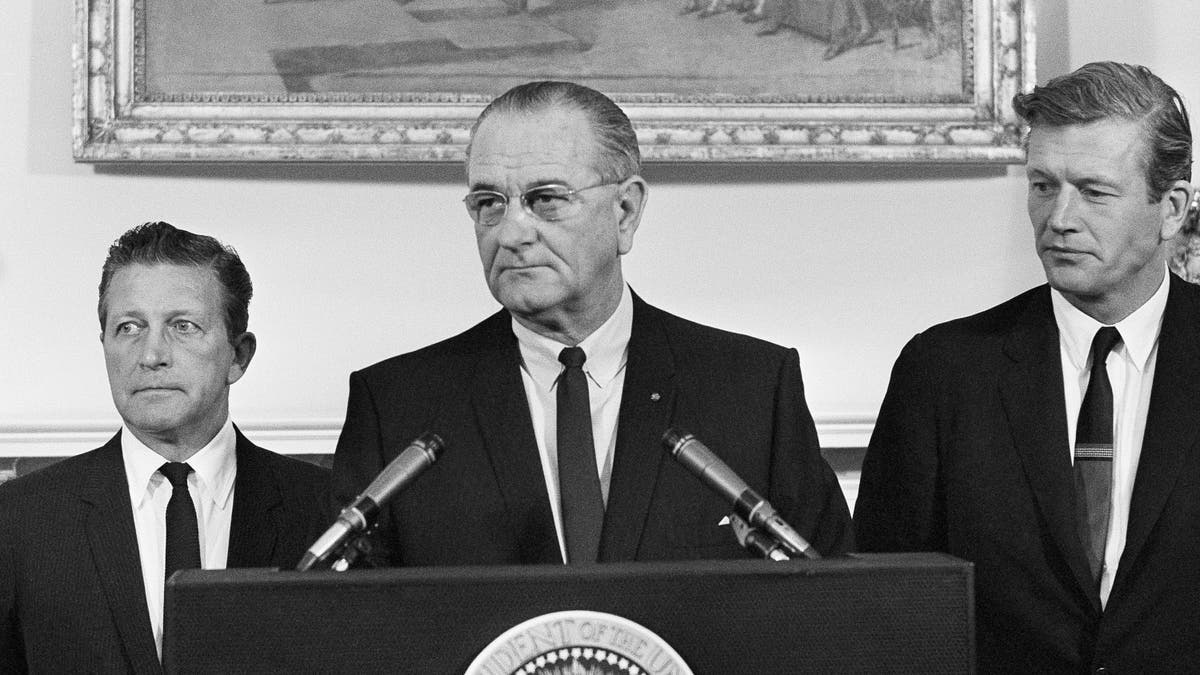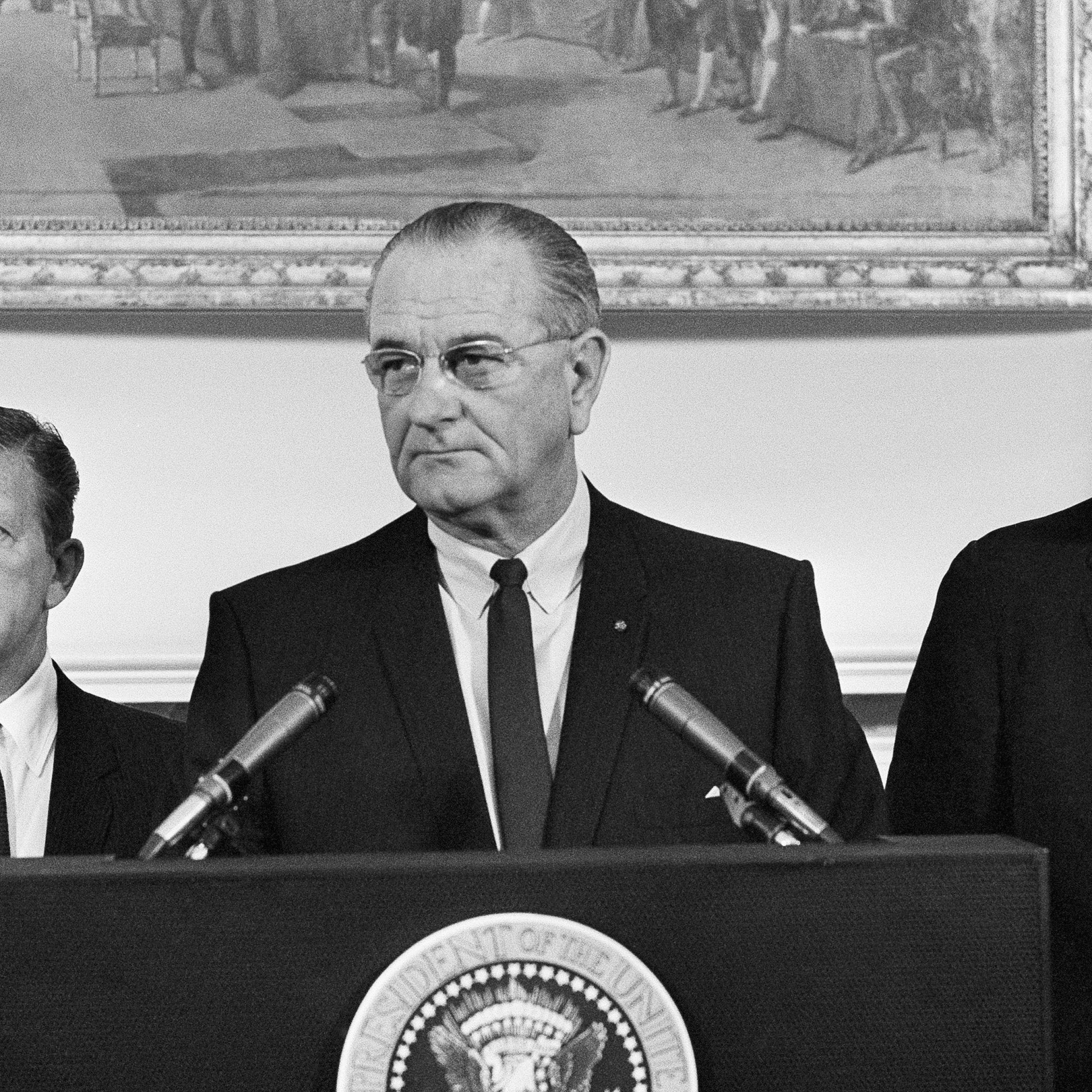President Lyndon B. Johnson signed the Civil Rights Act of 1964 on this day in history, July 2, 1964, “the most sweeping civil rights legislation since Reconstruction,” as the National Archives notes on its website.
The Civil Rights Act of 1964 “prohibited discrimination in public accommodations, provided for the integration of schools and other public facilities, and made employment discrimination illegal,” according to the Archives.
The passage of the Civil Rights Act took a long time to happen, the same source said.
ON THIS DAY IN HISTORY, JULY 1, 1847, THE UNITED STATES POST OFFICE ISSUES THE FIRST STAMPS
On June 6, 1963, then-President John F. Kennedy addressed racial equality in a nationally televised speech.
Kennedy later requested that Congress move forward with legislation “that would address voting rights, public accommodations, school desegregation, nondiscrimination in federally assisted programs, and more.”
President Lyndon B. Johnson signed the Civil Rights Act into law on this historic day, July 2, 1964. The act had been a long time coming and had been proposed by Johnson's predecessor, John F. Kennedy. (Fake Images)
Kennedy's request would eventually become the Civil Rights Act of 1964, although he would not live to see it.
He was assassinated in Dallas, Texas, on November 22, 1963.
After Johnson assumed office as president, he began working to make Kennedy's dream a reality.
ON THIS DAY IN HISTORY, NOVEMBER 22, 1963, JOHN F. KENNEDY, THE 35TH PRESIDENT, IS ASSASSINATED
The bill faced many hurdles in both houses of Congress, the National Archives said.
In the House of Representatives, opponents of the bill attempted to block its passage in the Rules Committee.
ON THIS DAY IN HISTORY, DECEMBER 1, 1955, ROSA PARKS REFUSES TO GIVE UP HER SEAT ON THE BUS TO A WHITE PASSENGER
The House of Representatives passed HR 7152 on February 10, 1964, sending the bill to the Senate, according to the U.S. Senate website.

President Lyndon B. Johnson (center, seated) shakes hands with Dr. Martin Luther King Jr. at the signing of the Civil Rights Act in 1964. (Hulton Archive/Getty Images)
In an effort to avoid the same committee delays on the Senate side, Senate Majority Leader Mike Mansfield, D-Montana, bypassed the Senate Judiciary Committee and put the bill on the Senate calendar, according to the Senate website.
At the time, the chairman of the Judiciary Committee was Sen. James Eastland, a Democrat from Mississippi, an opponent of civil rights legislation.
ON THIS DAY IN HISTORY, JANUARY 4, 1965, LBJ PROMOTES UTOPIAN “GREAT SOCIETY” IN HIS STATE OF THE UNION ADDRESS
“Mansfield proposed taking up the measure on March 9 and it became unfinished business in the Senate on March 26, prompting Southern senators to initiate a filibuster,” the Senate website notes.
The filibuster and further debate over the bill lasted until June 10, 1964, when adjournment was called after an impressive level of bipartisanship.
In late May, Senate Minority Leader Everett Dirksen, R-Ill., introduced the Dirksen-Mansfield-Kuchel-Humphrey “compromise bill,” which was backed by both Republican and Democratic members.

The Civil Rights Act of 1964 was signed into law on July 2, 1964. The other signatures on the bill were those of House Speaker John McCormack and Senate President pro tempore Carl Hayden. (Fake Images)
“Senator Dirksen, who previously opposed civil rights legislation, urged Republicans to support the bill as 'an idea whose time has come,'” the Library of Congress website states.
For more lifestyle articles, visit www.foxnews.com/lifestyle
The actions of Republican and Democratic leaders in the Senate were enough to end the months-long filibuster.
Johnson signed the bill surrounded by prominent civil rights leaders.
“The Senate filibuster was overcome thanks to the leadership of Senator Hubert Humphrey of Minnesota, the considerable support of President Lyndon Johnson, and the efforts of Senate Minority Leader Everett Dirksen of Illinois, who persuaded enough Republicans to support the bill in the face of Democratic opposition,” the National Archives said.
CLICK HERE TO SUBSCRIBE TO OUR LIFESTYLE NEWSLETTER
The Senate finally voted on the bill on June 19, 1964, and it passed by a vote of 73 to 27.

President Lyndon Johnson speaks with members of his advisory commission on civil disorders at the group's first meeting, July 29, 1967, at the White House in Washington. Otto Kerner, left, of Illinois, was the group's chairman, and Mayor John Lindsay of New York (right) was vice chairman. (AP Photo/WX)
The new compromise bill was sent to the House of Representatives, where it also passed.
CLICK HERE TO GET THE FOX NEWS APP
Johnson signed the bill surrounded by prominent civil rights leaders, including Martin Luther King Jr.












